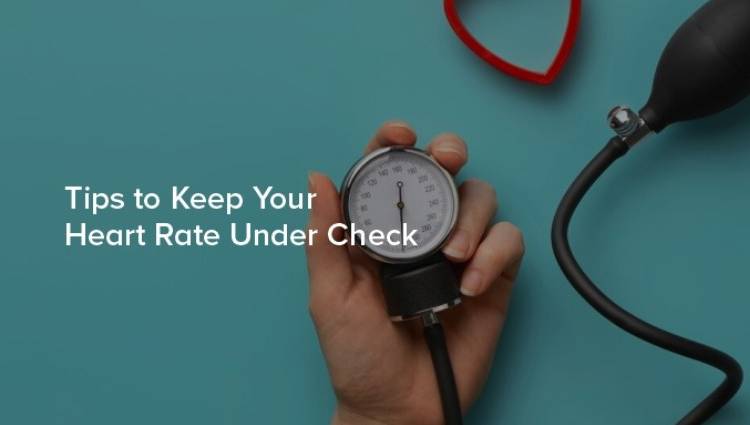
Maintaining a healthy heart rate is crucial for a healthy lifestyle and longevity. Your heart rate is a measurement of the number of times your heart beats in one minute. It is affected by various factors such as physical activity, age, stress, and underlying health conditions. A healthy heart rate varies from person to person depending on age and fitness level.
Regular Exercise:
Regular exercise is one of the best ways to keep your heart rate under control. Engaging in physical activities such as jogging, cycling, or swimming for about 30 minutes a day can help reduce your heart rate and maintain a healthy heart. Exercise helps strengthen your cardiovascular system, allowing your heart to pump more efficiently and effectively.
Eat a Balanced Diet:
Eating a balanced diet is essential for overall health, including heart health. A healthy diet rich in fruits, vegetables, lean protein, and whole grains can help reduce cholesterol and blood pressure, which can lower your heart rate. Avoid processed and high sugar foods as they contribute to inflammation and high blood sugar levels, leading to heart diseases.
Manage Stress:
Stress is a common contributor to high heart rate levels. Prolonged stress can increase your heart rate, leading to an increase in blood pressure, which can cause damage to your arteries and heart. Practicing stress management techniques such as meditation, yoga, or deep breathing exercises can help manage stress levels and lower your heart rate.
Quit Smoking:
Smoking is a significant contributor to heart diseases as it increases your heart rate and blood pressure. Smoking also damages your blood vessels, making it harder for your heart to function effectively. Quitting smoking is one of the best things you can do for your heart health, and it can significantly reduce your risk of heart disease.
Regular Check-Ups:
Regular check-ups are essential for keeping your heart rate under check. Your doctor can help assess your heart rate and identify any underlying health conditions that may be contributing to your heart rate levels. They can also advise on lifestyle changes, medications, or procedures that may be necessary to maintain a healthy heart rate.
Conclusion:
Maintaining a healthy heart rate is an essential aspect of maintaining overall health and well-being. Incorporating regular exercise, healthy eating, stress management, quitting smoking, and regular check-ups can significantly reduce your risk of heart disease and keep your heart rate under control. By adopting these practices into your daily routine, you can ensure a healthy heart and improved quality of life. Remember that small lifestyle changes can make a massive difference in preventing heart disease and living a healthy life.